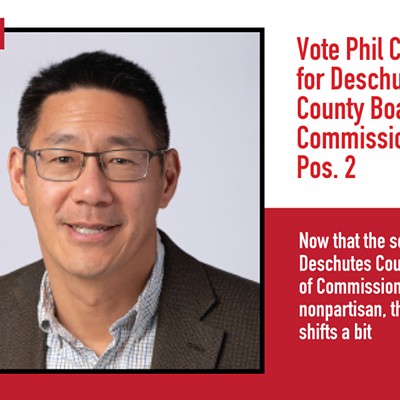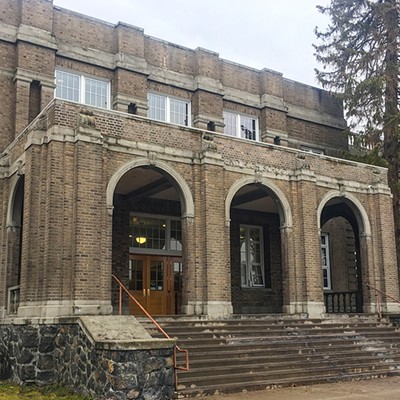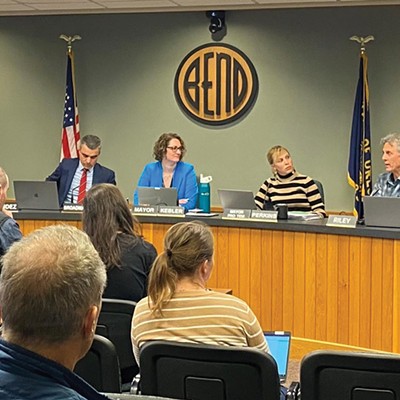Among state policies, two things have made Oregon make national headlines in recent decades: One, of course, is Measure 110 and its attempt at a new path for drug decriminalization and treatment – a measure that got something of a reversal this week when legislators passed HB 4002. The other policy that has made Oregon unique in recent decades is its land-use laws, championed by Gov. Tom McCall and passed in 1973, that aimed to preserve farmland and keep cities from sprawling. One need only look at the stark contrast between a city like Boise, Idaho and Bend — both fast-growing in recent years — to see how the policy differences between Oregon and Idaho play out. In Boise, sprawl. In Bend, a more compact city. But according to data from RentCafe, the average rent for an 882-square foot apartment in Bend is $1,874. In Boise, it's $1,602 for an average of 874 square feet.
Oregonians are a pioneering lot, and we could be commended for adopting policies and laws that attempt to do something better than it's been done before. Yet, with that tinkering sometimes comes a need to recalibrate when something isn't working how it was intended. In the case of Measure 110, the flood of fentanyl in the streets made a bad problem worse, and made total decriminalization no longer palatable to many voters and the majority of the Oregon State Legislative Assembly. In the case of our land use laws, we're seeing a similar tweaking of the recipe in the name of affordability and availability.
Going beyond black-and-white solutions is what seems to be the recipe with a new slate of bills that just passed the Oregon House and Senate. The Emergency Housing and Production Package, or SB 1530 and SB 1537, "doubles down on last session's $2 billion housing package," according to a press release from the House Majority Office. Among its big provisions is a relaxing of the land-use laws put in place in 1973.
"The package grants qualifying cities a one-time expansion of their Urban Growth Boundaries. Cities under 25,000 people can expand by 50 acres, while cities over 25,000 people can expand by 100 acres. In the Metro area, the cap is 300 acres. 30 percent of housing in any expanded areas must be affordable, one of the highest requirements in the nation. Cities must display that they have done comprehensive planning and permitting before expansion and demonstrate need for both housing and land," the press release explained. The package also creates a new $75 million revolving loan fund to make interest-free loans to local governments to help finance production of affordable housing and moderate income housing projects."
Bend got a one-time expansion of its UGB in recent years, through another pilot program that adds 261 acres to the city's total land at the Stevens Road Tract. Like the new program just passed in the legislature, a portion of that land must be developed for affordable housing. With the new program, Bend is eligible to add yet another 100 acres, and to see 30% of that go toward affordable housing. Presumably, that new 100 acres will also be on the east side of Bend, where instead of fertile farmland, we have sandy soils and junipers. Here in Central Oregon, conservatives have spent a lot of time griping about the state's land use laws and how the "farmland" we've protected around the city isn't really viable farmland at all. While those lands still hold value for wildlife, what we're seeing now from Salem is a reasonable relaxing of hard-and-fast, black-and-white rules. While we don't want to see the sprawl of Boise happen here, it's nice to see an embrace of the grey.
There are no black-and-white solutions to issues as important as housing. Preserving farmland — and wild spaces, to boot — is important, but so is providing the adequate level of housing for all of the people who are now here, and the many more who care to enjoy our "state of enchantment."





















